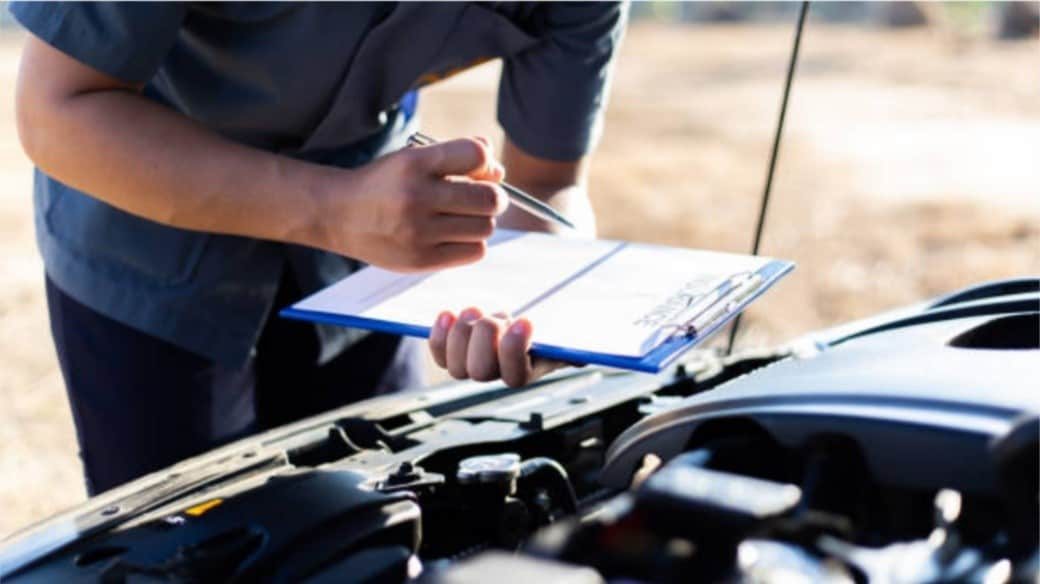All Categories
Featured
Routine tire turnings are a crucial yet usually ignored element of car maintenance. This straightforward procedure, which includes transforming the placement of your tires, aids keep even put on across all four tires, ultimately improving your vehicle's efficiency and durability. Let's explore the value of tire rotations and the concrete advantages they supply.
What Is a Tire Rotation?
![]()
Tire turning includes relocating the tires to different positions on your vehicle. The front tires may be switched with the rear ones, or they might be gone across from one side of the vehicle to the various other. The turning pattern depends on elements like your automobile's drivetrain (front-wheel drive, rear-wheel drive, or four-wheel drive) and the kind of tires you utilize.
Why Are Routine Tire Turnings Vital?
Tire turnings guarantee that all tires use down uniformly. Unequal tire wear occurs naturally because various tires experience varying levels of stress and anxiety based upon their position. For instance:
Front tires on front-wheel-drive automobiles deal with more jobs like steering, braking, and acceleration, triggering them to use quicker.
Rear tires on rear-wheel-drive lorries bear similar worries, causing irregular wear patterns if left uncontrolled.
![]()
Without normal rotations, some tires may wear too soon, demanding replacement earlier than expected.
Benefits of Regular Tire Rotations
Enhanced Efficiency and Handling. Also tire wear helps maintain balanced traction throughout all four tires. This equilibrium is essential for optimum lorry handling, especially in challenging driving problems such as rainfall or snow.
Extended Tire Life-span. Regular rotations disperse wear more evenly, lowering the demand for frequent replacements and saving you cash over time.
![]()
Enhanced Gas Performance. Erratically used tires can boost moving resistance, forcing your engine to function tougher and take in more gas. Correctly rotated tires guarantee smoother rides and much better fuel economic climate.
Security. Used tires compromise grip and stopping performance, raising the risk of accidents. Revolving your tires consistently keeps constant step depth and makes sure a more secure driving experience.
How Usually Should You Turn Your Tires?
Most experts advise turning your tires every 5,000 to 7,500 miles, however this can differ based upon your lorry's manufacturer standards. It's a good practice to combine tire turnings with routine services like oil adjustments for comfort.
Signs You Need a Tire Rotation
Uneven step endure your tires.
Noticeable resonance while driving.
Problem managing the lorry on wet or slippery roadways.
Final Thoughts
Normal tire rotations are a straightforward yet impactful maintenance job that enhances vehicle efficiency, enhances safety and security, and conserves you cash. By devoting to this practice, you'll enjoy a smoother driving experience and a longer lifespan for your tires. Consult your automobile's guidebook or a trusted auto mechanic to guarantee you're following the best turning routine and pattern for your cars and truck.
What Is a Tire Rotation?

Tire turning includes relocating the tires to different positions on your vehicle. The front tires may be switched with the rear ones, or they might be gone across from one side of the vehicle to the various other. The turning pattern depends on elements like your automobile's drivetrain (front-wheel drive, rear-wheel drive, or four-wheel drive) and the kind of tires you utilize.
Why Are Routine Tire Turnings Vital?
Tire turnings guarantee that all tires use down uniformly. Unequal tire wear occurs naturally because various tires experience varying levels of stress and anxiety based upon their position. For instance:
Front tires on front-wheel-drive automobiles deal with more jobs like steering, braking, and acceleration, triggering them to use quicker.
Rear tires on rear-wheel-drive lorries bear similar worries, causing irregular wear patterns if left uncontrolled.

Without normal rotations, some tires may wear too soon, demanding replacement earlier than expected.
Benefits of Regular Tire Rotations
Enhanced Efficiency and Handling. Also tire wear helps maintain balanced traction throughout all four tires. This equilibrium is essential for optimum lorry handling, especially in challenging driving problems such as rainfall or snow.
Extended Tire Life-span. Regular rotations disperse wear more evenly, lowering the demand for frequent replacements and saving you cash over time.

Enhanced Gas Performance. Erratically used tires can boost moving resistance, forcing your engine to function tougher and take in more gas. Correctly rotated tires guarantee smoother rides and much better fuel economic climate.
Security. Used tires compromise grip and stopping performance, raising the risk of accidents. Revolving your tires consistently keeps constant step depth and makes sure a more secure driving experience.
How Usually Should You Turn Your Tires?
Most experts advise turning your tires every 5,000 to 7,500 miles, however this can differ based upon your lorry's manufacturer standards. It's a good practice to combine tire turnings with routine services like oil adjustments for comfort.
Signs You Need a Tire Rotation
Uneven step endure your tires.
Noticeable resonance while driving.
Problem managing the lorry on wet or slippery roadways.
Final Thoughts
Normal tire rotations are a straightforward yet impactful maintenance job that enhances vehicle efficiency, enhances safety and security, and conserves you cash. By devoting to this practice, you'll enjoy a smoother driving experience and a longer lifespan for your tires. Consult your automobile's guidebook or a trusted auto mechanic to guarantee you're following the best turning routine and pattern for your cars and truck.
Latest Posts
Explore Cost-Effective Auto Repairs with Montclare’s Limited-Time Service Specials
Published May 21, 25
1 min read
Join WyHy FCU – Essential Perks for Your Financial Future
Published May 21, 25
1 min read
Explore the Storied Past of Deauville Inn: From Speakeasy to Jersey Shore Icon
Published May 19, 25
2 min read
More
Latest Posts
Explore Cost-Effective Auto Repairs with Montclare’s Limited-Time Service Specials
Published May 21, 25
1 min read
Join WyHy FCU – Essential Perks for Your Financial Future
Published May 21, 25
1 min read
Explore the Storied Past of Deauville Inn: From Speakeasy to Jersey Shore Icon
Published May 19, 25
2 min read